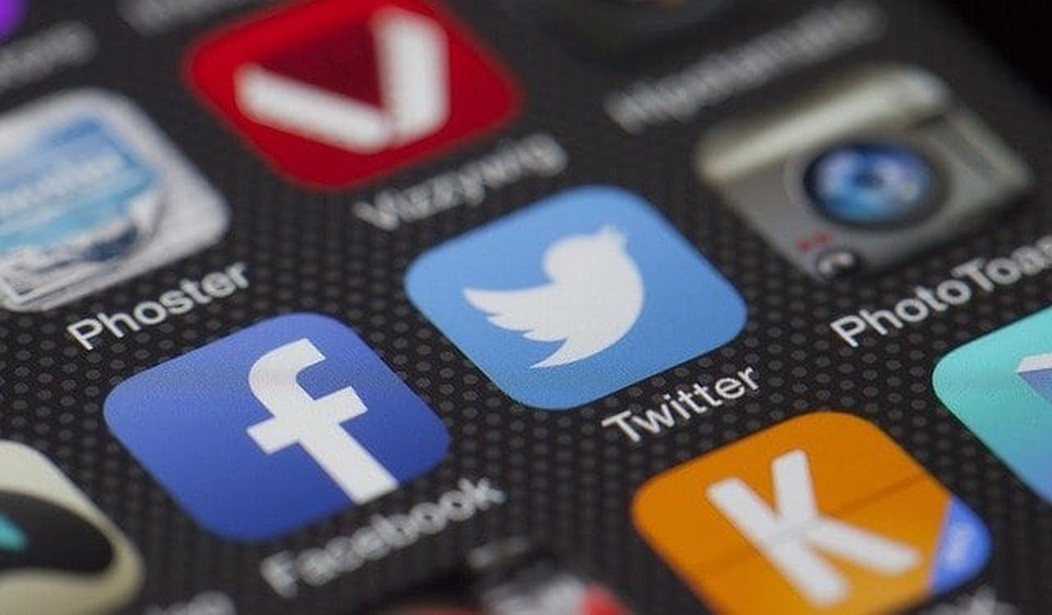Looking back at the week that was, cancel culture continued to ravage our history and get people fired from their jobs.
The former has little if anything to do with Twitter, and needs to be stopped, but the latter happened pretty much entirely on Twitter and usually does.
In the first case, Will Wilkinson tweeted a joke and that joke cost him his job at a think tank. His case is ironic because Wilkinson had dismissed the existence of cancel culture despite the fact that its existence has been glaringly obvious to anyone who has paid attention over the past several years. You may not believe in cancel culture, but cancel culture may still hunt you.
Cancel culture has been a thing at least since the time of #hasjustinelandedyet. Remember that? That happened at the end of 2013 — more than seven years ago now. A woman no one other than her family and friends had ever heard of was suddenly the focus of an international campaign on BuzzFeed, while she was on an international flight and had no way to respond or defend herself, to destroy her. And destroy her it did, at least for a while. She lost her job. Buzzfeed made cruel sport of her for tweeting an unfunny joke and remains the remorseless destroyer of reason on the internet that it was then.
In the second case, a literary agent got fired merely for having Parler and Gab accounts. She had not posted anything offensive on either of them. Twitter comes into the picture because she tweeted about establishing those accounts back in November, and some Twitter users tweeted that tweet at her boss, who panicked and then fired the agent. She was fired merely for having social media accounts on specific platforms.
The common denominator here is Twitter and the people who weaponize it against other people.
I’ll be honest here. I’ve come to despise Twitter.
That wasn’t always the case. In fact, in 2009 I was so sold on Twitter’s virtues that I would give speeches and talks about how it empowered everyone to get around the media and tell their side of the story. Twitter could be used to build a reputation and quickly move ideas, react to situations, and so forth. It was a tool that could be used for a great deal of good. One time, just as I was about to speak to a Republican activist audience about Twitter and Facebook, Iranian protesters tweeted out images of the violence the mullahs were perpetrating against them. I led the speech with that, to show just how powerful and useful this new medium could be. Twitter was a revelation back then. Getting real-time information from around the world about stories the media misreported or buried felt magic. It was amazing.
At the time, we didn’t know anything about Twitter’s corporate leadership or their politics. Twitter was neutral or at least it seemed that way. Too bad it didn’t stay that way. Cancel culture hadn’t yet taken hold. Twitter hadn’t unmasked itself as a censorious scold that will actively take sides in politics. Twitter hadn’t yet tried to impact a presidential election by censoring a very important story about the financial connections involving one of the candidates. Twitter users hadn’t devised ways to use the medium to wreck strangers’ lives.
We didn’t know that corporate Twitter actively hates about half the country.
Now we know what Twitter is all about. CEO Jack Dorsey knows he is powerful and he has no compunction about using that power to bend our country to his will. Twitter users give him that power. Twitter users also skew far to the left even of the Democrat Party. They are not representative of the country, but in mobs, they can and do wield outsize influence.
That’s a lot of preamble. The question is what can we do about this?
The first and most obvious thing is take a deep breath or five before tweeting that hot take that you think is hilarious and brilliant but others might misread, either accidentally or intentionally. Twitter and its user base is no one’s friend. You may have just a few, or thousands, or millions of followers. Many of them are anonymous, just given the nature of the platform. Many of them may be following you for the express purpose of trying to destroy you. The larger your following is, the more likely that is. At any given time, any one or a group of those followers may use something you tweet today or something you tweeted years ago against you. They may pull it out of context. They may twist its meaning. They don’t care. Twitter is not about the pursuit of goodness and truth. Your followers may include your friends, but not all of them are your friends. Keep that in mind. Is the temporary hit you get from the retweets and the likes worth wrecking your career?
For companies such as the Jennifer De Chiara Literary Agency, which had its agent’s presence on Parler and Gab tweeted at it, keep in mind that those tweeters who are going after your employee or associate are also not your friends. Even if they pat you on the back for firing the employee or associate they’re targeting, so what? Within seconds they’ll just move on to the next target. That target may still be you. They don’t care about you or your company. They care about destroying people they don’t even know. If your company is destroyed, too? They. Don’t. Care. They just don’t.
Meanwhile, you’ve just damaged your company, maybe permanently. You’ve also signaled to your remaining employees just how loyal you are to them.
So if you’re the Jennifer De Chiara Literary Agency and some tweeters come at you to hit one of your employees, don’t feed the trolls. Report those tweeters for harassment. That’s what they’re doing. They’re harassing you and they’re harassing your employee. Report them to Twitter and reply that you’ve reported them to Twitter. Twitter may take no action against them, but at least you’ve provided that opportunity. You’ve also shown that you won’t be bullied.
Now, it’s possible that the targeted employee actually did something wrong or violated company policy. Handle that the way you would if Twitter had nothing to do with it. But (because millions of Twitter’s users are awful people), your employee may be innocent. If that’s the case take no action against them. And don’t feed the trolling tweeters by telling them about any action you have or have not taken. It’s your business and none of theirs. Keep it in house. I’m not a human resources specialist, mind you, but being reasonable and not giving in to mobs is generally a wise course to take. Mobs are almost always dangerous and up to no good.
Ultimately, Twitter is no longer the product it once sold itself as. It’s not politically neutral. It’s as likely to censor news as it is to allow its broadcast. It encourages shallow thinking and hot takes instead of reason and nuance. It’s been weaponized by the left-wingers who work there and by cancel culture, which is damaging to our larger culture, in my opinion. It also doesn’t drive a great deal of internet traffic now and its use as a tool to drum up business or enhance reputation is questionable. It may be worth it to just to take yourself and your business out of the game.









